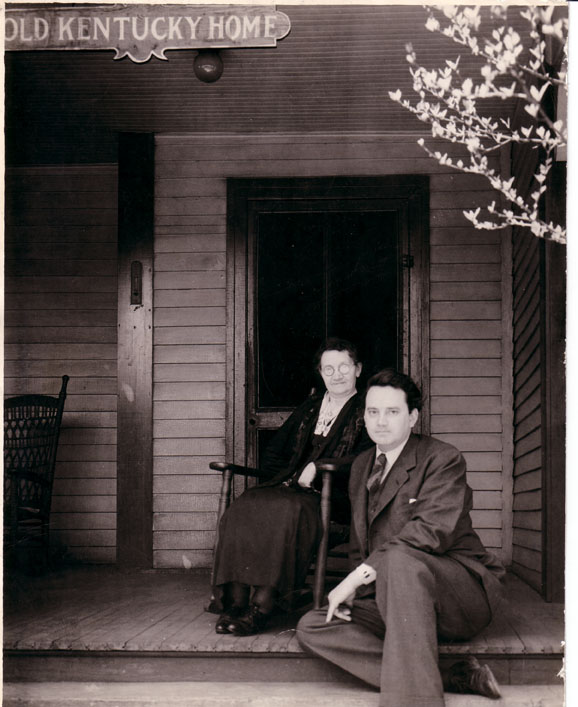Asheville’s reaction to Thomas Wolfe’s 1929 debut novel, Look Homeward, Angel, is a well-documented part of the city’s history, as well as the author’s own mythology and lore. Many local residents were shocked by the work, which they considered a thinly disguised tell-all (much to the author’s chagrin).
Less known is the ensuing years after the book’s publication and Wolfe’s desperate effort to complete his second novel, Of Time and the River. (The book’s original title, referenced later in this piece, was October Fair.)
On Aug. 9, 1931, the Asheville Citizen-Times ran a feature in its Sunday edition with the headline: “Thomas Wolfe, Asheville Author, Soon To Publish New Modern Novel.” In the piece, the paper spoke with Wolfe’s mother, Julia, upon her return from visiting her famous son in Brooklyn, where he lived. According to the paper, Julia delivered “definite assurance that Asheville would not be on parade in the forthcoming opus.” (Interestingly, in a subsequent Oct. 25, 1931, article also published by the Citizen-Times, Julia is directly quoted as saying, “Tom never tells me anything about his books.”)
Furthermore, the paper declared the new book’s content would show “a softening of the cynicism revealed in [Wolfe’s] first book.”
Beyond the new book itself, the article discussed Thomas’ ultimate goal. According to Julia, her son wanted to complete a new work “every three years until he reached an age too old to write.”
Several months after the feature ran, Thomas wrote his mother from his Brooklyn apartment. He began his Dec. 4 missive by thanking her for a fruitcake she’d sent, “which arrived in good condition a few days ago.”
But within a few paragraphs, Wolfe revealed the stress he was under in his efforts to complete October Fair, and his need for privacy regarding the project’s status.
“I am working hard and desperate — it’s do or die now — and there can be no rest or let up for me now until I finish,” the author declared to his mother. “I want to ask you not to say anything to any one about my work — Mable [Wolfe’s sister] showed me an article in one of the Asheville papers in which you were quoted — I am sure you did not say the things they printed — but the article was misleading and embarrassing and at the present time I want to be free of this kind of thing. I will finish my book when I finish it; it will be published when a publisher takes it — and when that will be, or what it’s about is at present no one’s business but my own.”
Another four years would pass before Charles Scribner’s Sons released Wolfe’s retitled Of Time and the River, in 1935. The strain of the project — the author’s final novel published during his lifetime — resulted in the dissolution of his professional relationship with renowned editor Maxwell Perkins, who discovered the likes of F. Scott Fitzgerald, Ernest Hemingway and Marjorie Kinnan Rawlings.
Throughout his short life, Wolfe rebutted the criticism that many in his hometown made about his work. “Every writer who is honest, I think, feels the tragedy of destiny,” he wrote his mother on April 26, 1930. “I think some people at home made that mistake about my first book — they thought the author was bitter about people, but he was not: he may have been bitter about the toil, waste and tragedy of living.”
Editor’s note: Peculiarities of spelling and punctuation are preserved from the original documents.




Before you comment
The comments section is here to provide a platform for civil dialogue on the issues we face together as a local community. Xpress is committed to offering this platform for all voices, but when the tone of the discussion gets nasty or strays off topic, we believe many people choose not to participate. Xpress editors are determined to moderate comments to ensure a constructive interchange is maintained. All comments judged not to be in keeping with the spirit of civil discourse will be removed and repeat violators will be banned. See here for our terms of service. Thank you for being part of this effort to promote respectful discussion.